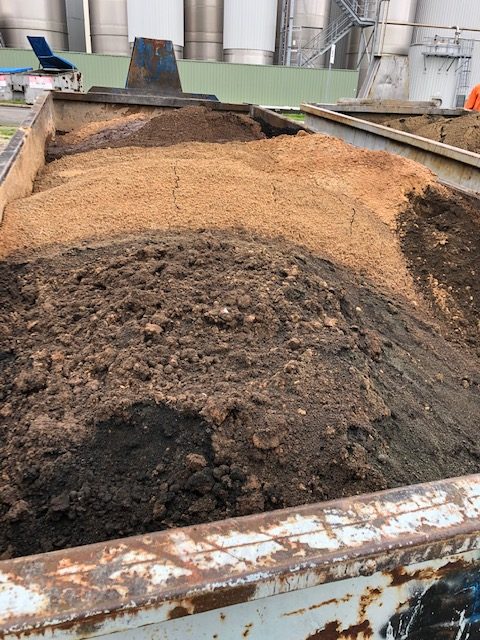GrainOut is a subsidiary of Benzoil that specialises in food and beverage by-products.
Bentonite is a by-product from the edible oil manufacturing process and one of GrainOut’s products. It is predominantly used in animal feed as a pH buffer to neutralise the effect of lactic acid build up (acidosis) from cereal feed, however more recently its benefits in animal feed have extended far beyond that.
Issues arising from cereals in animal feed
Animal feed is a critical component in the food chain which influences the quality and composition of animal products (meat, milk, eggs) for human consumption.
Animal feed crops such as wheat, maize, barley, rye and oats are most susceptible to a contaminant called mycotoxin. These cereals form the major part of an animal’s daily diet.
Cereals can be contaminated by fungi which can lead to mycotoxin production. This can occur in the paddock or in storage. Warm and humid conditions promote the growth of these fungi making them natural contaminants of these cereals. Mycotoxins have adverse effects on both humans and animals at low levels.
Fungal contamination of grains is a worldwide problem. Analysis of samples taken from a Qatar market show 44, 40 and 50% of mixed cereals, maize and barley samples, respectively, were contaminated with aflatoxins (AF) and ochratoxin A (OTA).
Due to the carcinogenic effects of mycotoxins, the International Agency for Research on Cancer (IARC) have placed aflatoxin B1 (AFB1) in the most toxic group (i.e. group 1). More recently in Europe, aflatoxin has been significantly increasing due to rising average temperatures, which is expected to increase further.
Benefits provided by bentonite
Bentonite (clay materials) has been found to be highly effective in the absorption of mycotoxins, specifically aflatoxins (AF). The safety and efficacy as a feed additive has also been evaluated by the European Food Safety Authority (EFSA). It observed that bentonite is not genotoxic and are not absorbed when used as an animal feed, hence no direct toxicological risk to the animal.
Bentonite has shown better mycotoxin absorption than commercial (binders) products on the market. The formation of the mycotoxin-bentonite complex blocks the gastrointestinal absorption of mycotoxin. The dietry inclusion of bentonite (3.7 and 7.5g/kg) has been shown to offset the adverse effects of 0.1 and 0.2 mg/kg of aflatoxin B1 (AFB1).
Despite these benefits, incorporating bentonite into animal feed diet takes time.
Challenges in incorporating bentonite as a stock feed
- Cattle lot farms have very strict diets and nutritional requirements, so any changes have to be done carefully and not rushed to avoid any potential risk to animal nutrition.
- Small volumes, geographic locations and packaging format (bulk, bulkabags or 25kg bags) requirements can vary greatly making its supply chain and distribution challenging.
Challenges in incorporating bentonite for animal feed manufacturers
- Technical trials and the subsequent product approval process to transition from commercial (binder) products to bentonite takes time.
Despite the initial challenges that may be encountered when introducing bentonite into animal feed, research shows that bentonite is the most cost-effective solution that far out performs commercial (binder) products.
GrainOut can assist with any queries or sample/trial requirements for bentonite, please contact us on 0437 965 270.


